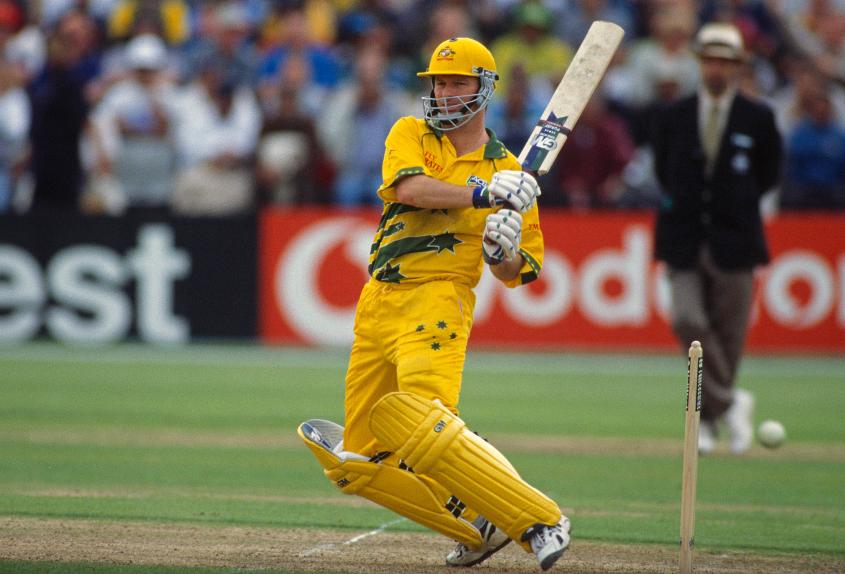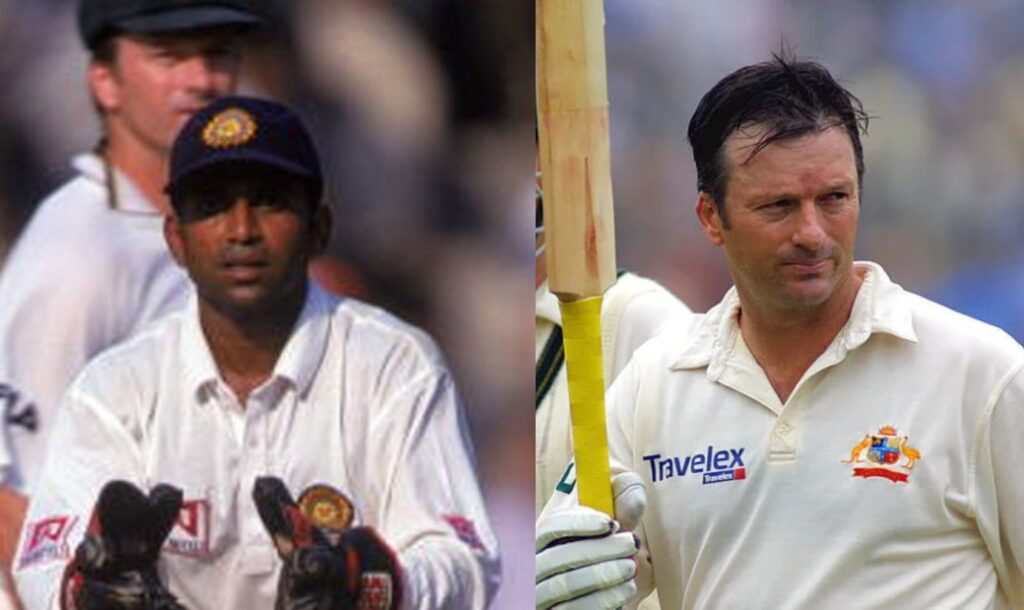The 1999 ICC Cricket World Cup had a number of unforgettable moments, right from South Africa’s heartbreaking exit to India scoring a mammoth 373 against Sri Lanka to the one-sided final between Australia and Pakistan. But there was another significant on-field antic that has been forgotten over the years. This was in the league match between Australia and West Indies played at the Old Trafford, Manchester.
West Indies were put into bat by Australia. Their innings started on a disastrous note and continued the same till the end of their innings. They kept losing wickets and were 20/3 at one stage when Brian Lara departed for just 9. The Windies never recovered and were bowled out for a paltry 110. The dangerous Glenn McGrath was at his best as he had figures of 5 for 14 in 8.4 overs.
Wicket-keeper Ridley Jacobs, who opened the innings, was the only West Indian to show any fight as he remained not out on 49. He became the first opener in World Cup history to carry his bat throughout the innings. Interestingly, the second highest contributor in the West Indian innings were the 22 extras.
In reply, Australia reached the target of 111 with just 4 wickets down. This sounds like a normal one-sided match but it wasn’t as simpler as it looked.
In the 1999 World Cup, the next stage after the league matches was the Super Six. The rules were such that if a team enters that stage and along with it the team they beat also makes it to that stage, the former will get extra points. In other words, if Team A beats Team B and they both enter the Super Six, Team A will automatically get extra points for having beaten Team B earlier. Similarly, Australia, which had to reach the target in 47.2 overs to qualify, had lost to New Zealand, so they didn’t want them to qualify. They wanted WI to qualify for the aforementioned reasons.
Once it was confirmed that Australia was going to win the match easily within the stipulated overs, this equation started playing in the batters Steve Waugh and Michael Bevan’s minds. Hence, they started batting as slowly as possible, so that the West Indies gets a better net run rate and would, hopefully, enter the Super Six. This would mean that Australia will get more points automatically in that stage.
The crowd at the Old Trafford, obviously, got bored and started raising slogans to see Waugh and Bevan batting at a snail’s pace. All of us, who were watching it on TV got bored too. I remember Phil Simmons bowling his gentle medium pace and the two batters blocking him as if they were facing a dangerous fast bowler in a test match. Australia eventually took as many as 40.4 overs to reach the target of just 111. Bevan remained not out on 20 off 69 balls and Waugh took 73 balls for his 19 not out! (See the whole scorecard HERE)
The Aussies faced flak from the media after that match. Matthew Engel of The Guardian wrote, “Some have thought the complexities of the qualification system unfathomable. Yesterday the Australians fathomed them, and the result was a dreadful and shameful game of cricket.”
But Australian tactics didn’t work as West Indies still didn’t qualify for the Super Six and New Zealand did. This didn’t affect Australia though. They went onto win the 1999 World Cup easily and everything about their match against the West Indies was forgotten.
The Australian batting brings back memories of the 1994 Wills World Series ODI between India and (again) West Indies in Kanpur when Manoj Prabhakar and Nayan Mongia didn’t even try chasing 63 in 54 balls. They kept blocking and eventually India lost! Of course, there is no similarity in the end result and what the two Indian batters did was more unfathomable than Waugh and Bevan’s actions. Prabhakar and Mongia were ultimately banned from playing any further matches in the series.
Also read: He was selected for ‘83 World Cup, but could play in ‘99

